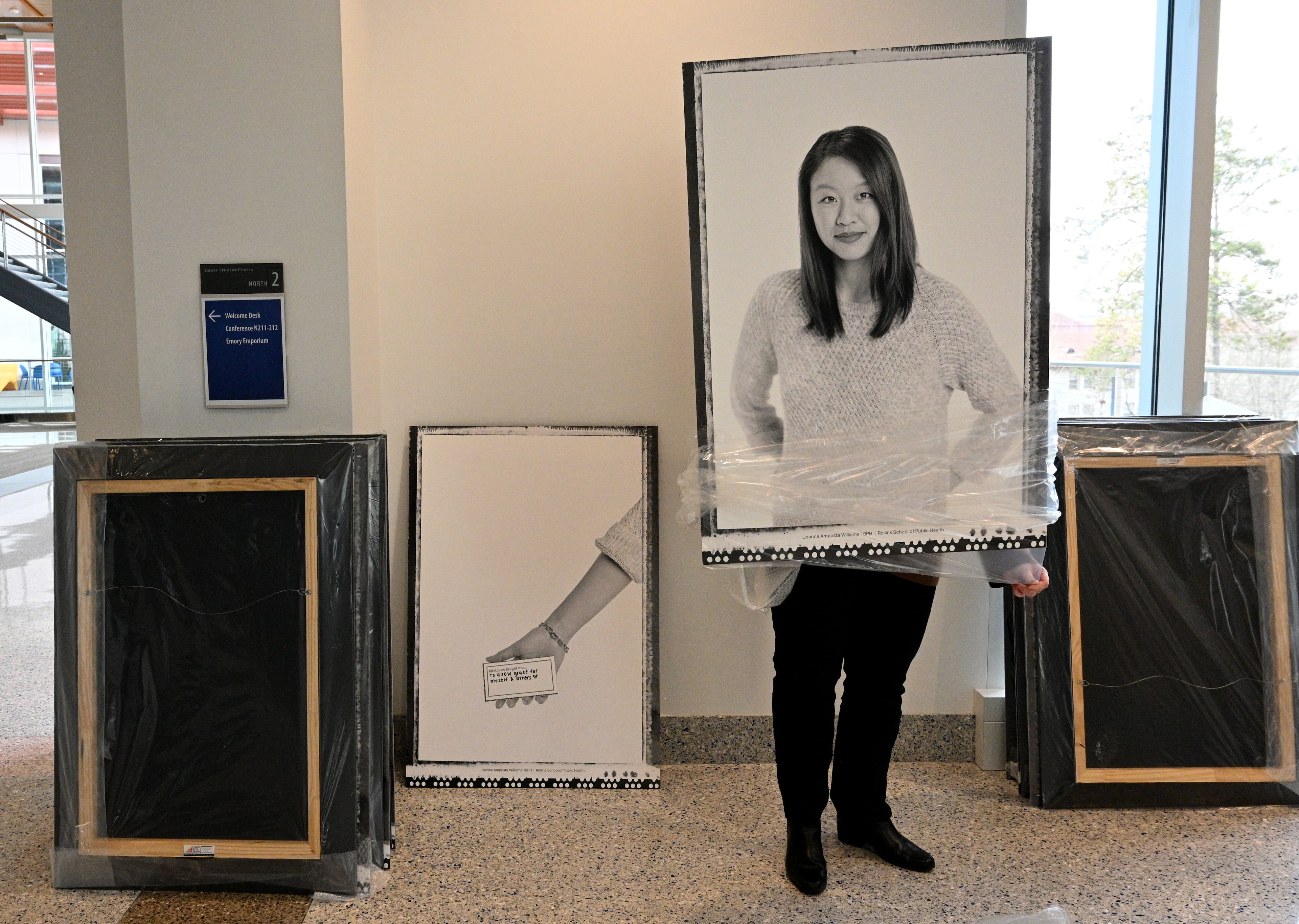Mental health campaign takes aim at college students’ ‘toxic perfectionism’

In MJ Curtis Jr.’s graduate program at Emory University, students rarely talk about failure.
He and his classmates, a bunch of “Type A personalities,” take on a lot of stress, he said. If someone doesn’t perform well on an exam or is struggling outside of school, “it’s a very hush-hush thing,” said Curtis, who is pursuing a doctor of nursing practice degree.
“In my schooling, in my relationships, in the community, being a leader — I definitely feel like I always have to have it figured out,” said the 27-year-old from Memphis.
That’s why he found Emory’s new student mental health campaign, which launched online and on campus this week, so striking. “Reframes: Discovering the Possible” highlights the dangers of toxic perfectionism and the lessons that students can learn when life doesn’t turn out the way they expected or hoped.

Elite universities such as Emory, which admits only about 11% of applicants, can be pressure cookers for students striving for good grades and career opportunities.
One prominent study published by the American Psychological Association found that college students reported rising rates of perfectionism over nearly three decades, a troubling trend researchers say could be attributed partly to increasingly competitive environments, unrealistic expectations and social media comparisons. Perfectionism can be linked to various mental health issues, such as anxiety, depression and thoughts of suicide, and can be a factor in eating disorders.
TikTok, for example, is flooded with videos made by students who list their college admission “stats” — high school grade-point average, SAT score, extracurriculars and number of Advanced Placement courses. The comment sections fill up with congratulations and criticisms from other students. The leaders of several social media platforms appeared before Congress a few weeks ago to respond to concerns that the sites are creating mental health challenges for many young people.
Emory’s new mental health campaign shares stories from 10 faculty members, staff and alumni who’ve overcome setbacks and self-doubt. Through black-and-white portrait photography and vulnerable videos, the initiative aims to inspire students to build resilience from difficult moments.
“There’s a lot of competition to even get into universities, and then sometimes when they experience mistakes or even failures, if they chose to use that word, it can feel like their dreams are dashed,” said James Raper, Emory’s associate vice president for health, well-being, access and prevention.
Officials hope the campaign sparks a campuswide conversation about normalizing failure and how to support one another. Over the next couple of semesters, Raper said Emory will host a dinner-and-dialogue series in which students can voluntarily come together in small groups to talk and share their own stories.
Raper, a licensed clinical mental health counselor, recorded one of the videos, to be promoted over the course of the semester. He describes how he struggled with his own mental health in college, didn’t have the grades to remain and how he worked hard to return to school: “What I know is that all of us, including you, are enough as you are. You don’t have to be anything else,” he tells the camera.
In another video, Joanne Williams, director of student engagement at Emory’s Rollins School of Public Health, talks about not getting into medical school.
“I fully believed at that time I had disappointed myself (and) my family,” she said.
As she grieved the loss of what she thought her life would be, she started focusing on other things that made her happy. She ended up joining AmeriCorps after college and then went to graduate school at Emory to study public health.
“There is hope after failure, but it takes time and a lot of patience and grace with yourself,” she said. “It takes honesty and really thinking about what you want as an individual.”

As a member of the Student Well-being Advisory Committee, Curtis had a chance to preview the campaign. He found the stories relatable and appreciated how mistakes and challenges created opportunities for people to be who they are “destined to be.”
“The idea behind failure doesn’t have a positive connotation unless we change this narrative,” Curtis said.



